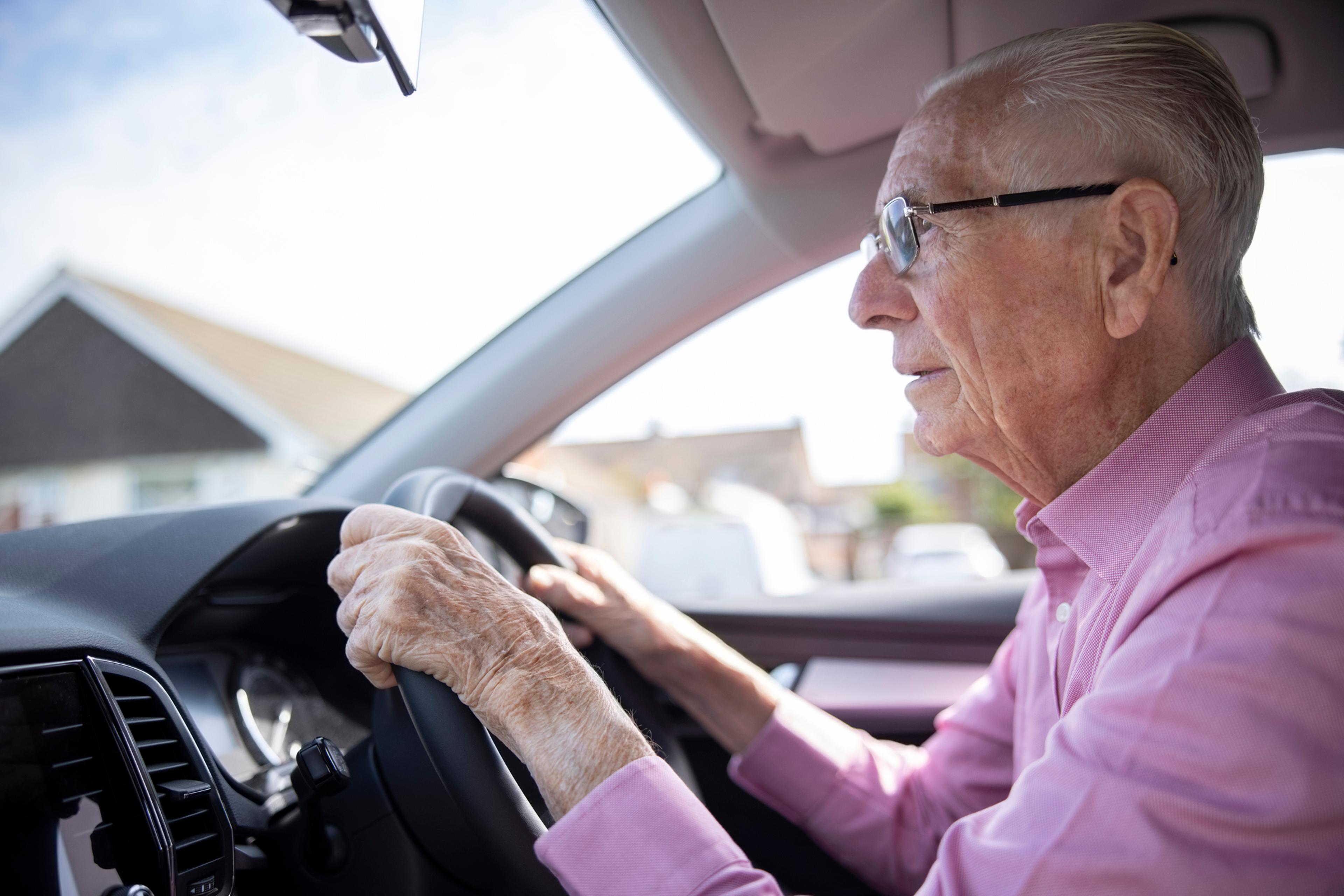‘I Like to be the Person That I Needed:’ YWCA Kalamazoo’s Community Health Worker Helps Reduce Black Maternal Health Disparities Through Resource Hub Project
Jake Newby
| 5 min read
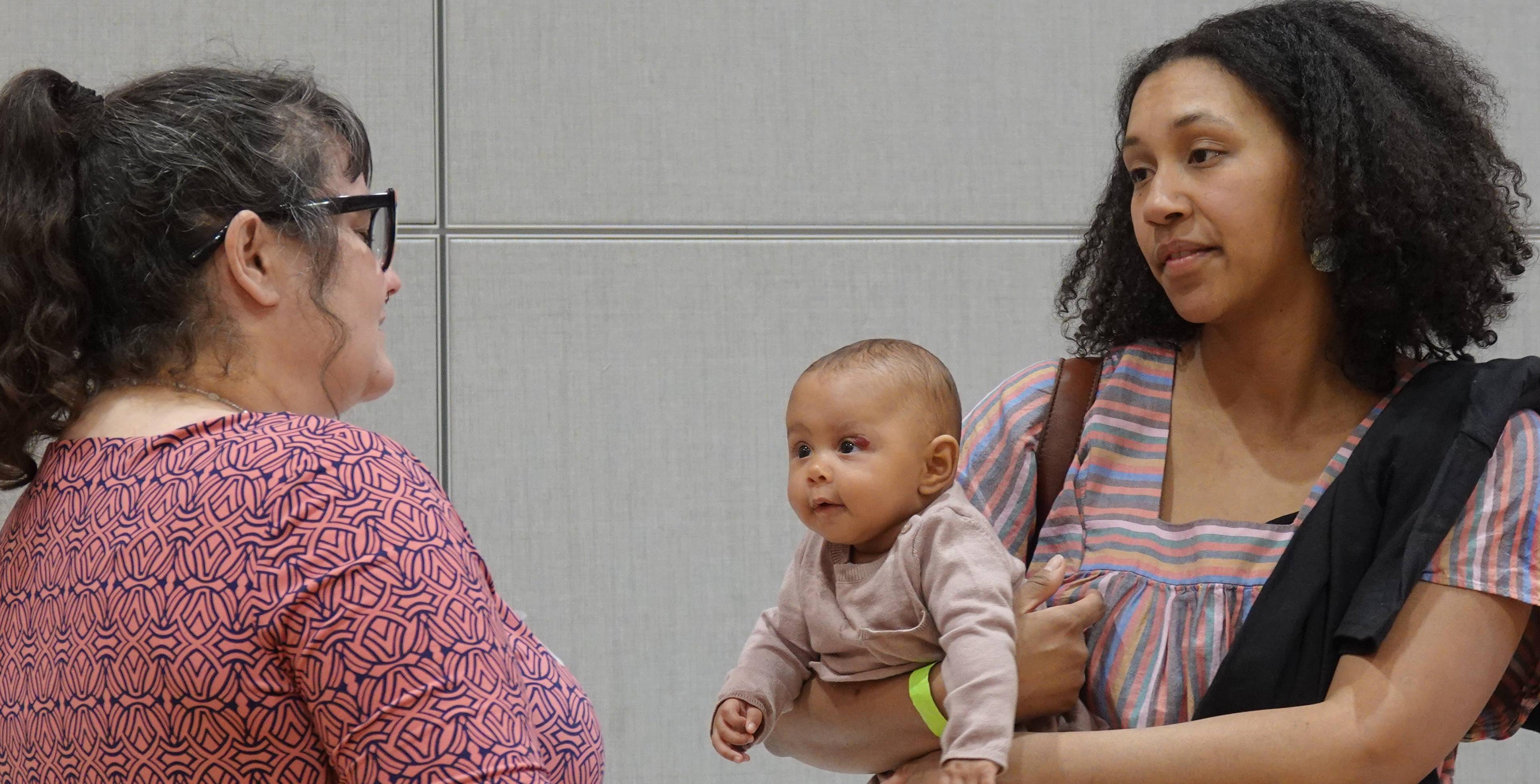
As a young expectant Black mother years ago, Tami Rey wishes she could have benefited from the type of comfort and guidance that she herself provides to young Black mothers-to-be all these years later.
In November 2023, Rey accepted a position as Community Health Worker (CHW) with YWCA Kalamazoo (YWCA) as part of YWCA’s Resource Hub. Rey helps provide resources, education and items young moms need for a child’s first year of life, such as car seats, pack and plays and most importantly, assistance securing safe housing.
She also works to address historic mistrust of home visiting, while providing check-ins with young mothers in the Kalamazoo area who are referred to the organization’s home visiting program. Studies show that evidence-based home visiting programs provided by CHWs – compared with care provided in a clinical setting alone – is associated with reduced risk for adverse birth outcomes, improved prenatal and postnatal care, and reductions in disparities, especially among Black individuals.
“I like to be the person that I needed,” Rey said, during an interview with Blue Cross Blue Shield of Michigan (BCBSM). “I’m a mother of two and I’ve had some not-so-good experiences with some health care providers. It’s important that we’re teaching moms to advocate for themselves, what questions to ask, as we’re not always heard when we’re in those health care spaces. That has been my experience, so it’s important to me that I pass that information along.”
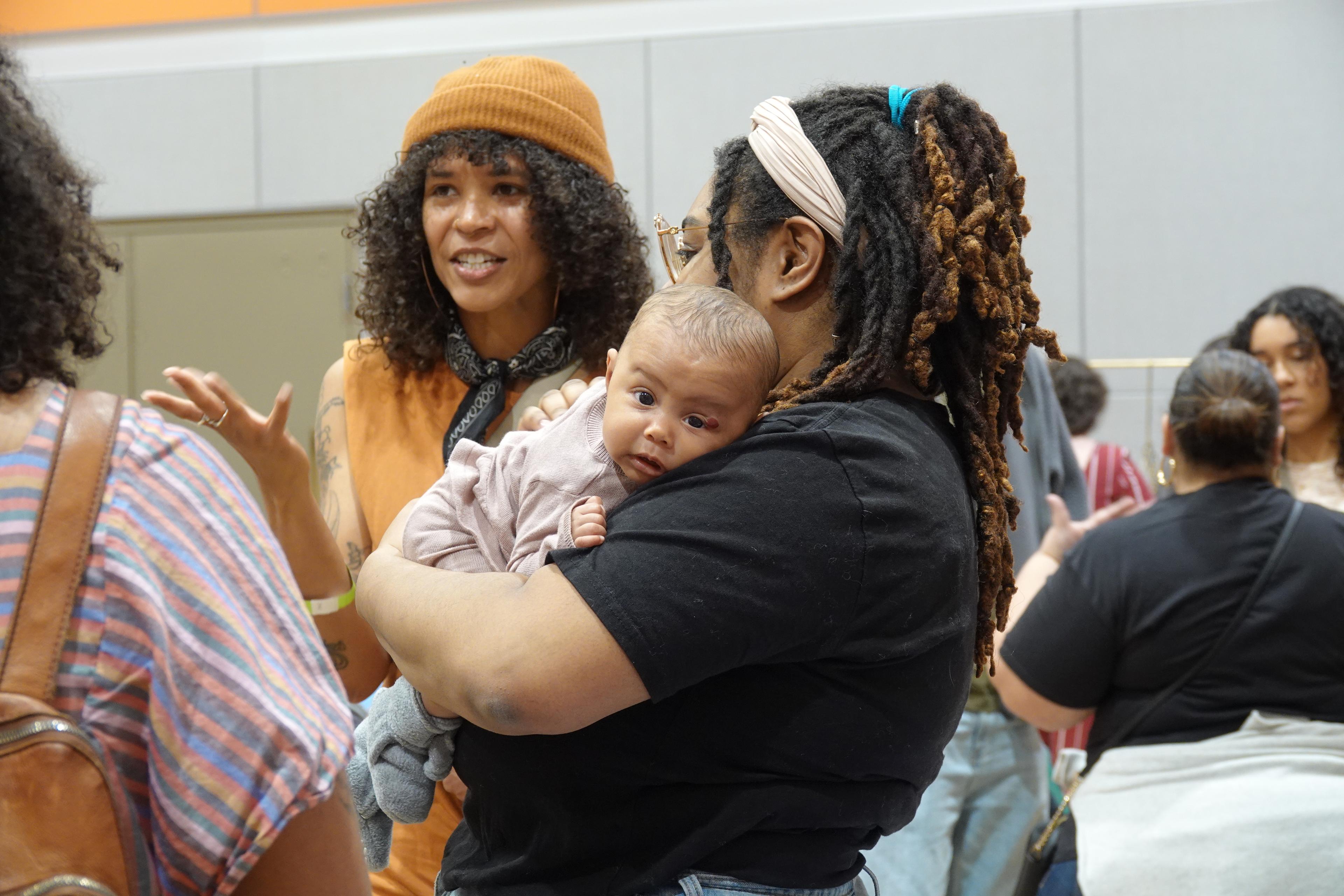
As part of Cradle Kalamazoo, a community collaborative to address the alarming infant mortality rates in Kalamazoo County, the Resource Hub utilizes a resource first approach to support women of color, women living in poverty and women with previous poor birth outcomes, particularly from pregnancy through first-year postpartum.
As part of BCBSM and the BCBSM Foundation’s Advancing Maternal Health Equity initiative, YWCA's Resource Hub was awarded $100,000 in grant funding. Rey’s deployment as a certified CHW was a crucial outcome of the grant’s funding.
“I’m always looking for ways to help folks and do what I can to ensure that our babies are making it to their first birthday,” Rey said. “That’s extremely important to me.”
How Rey helped set a 16-year-old expectant mother up for success
YWCA Kalamazoo hosts quarterly community baby showers that had been virtual until December of 2023, due to the COVID-19 pandemic. But back in person for the December event, Resource First – which Rey oversees – was essentially introduced in a baby shower setting for the first time during the event.
“This allowed for small group discussions about resources and what people needed,” Rey said. “It wasn’t the first time we asked those questions, but it was the first time we had a small, intimate space to be able to connect and hear about things that they need. So, I met that young lady, we talked about what she needed. She was very open and comfortable. She shared that her mom, herself and her brothers and sisters were staying in a shelter. They didn’t have housing. She was due, I want to say, she was a couple of weeks out.”
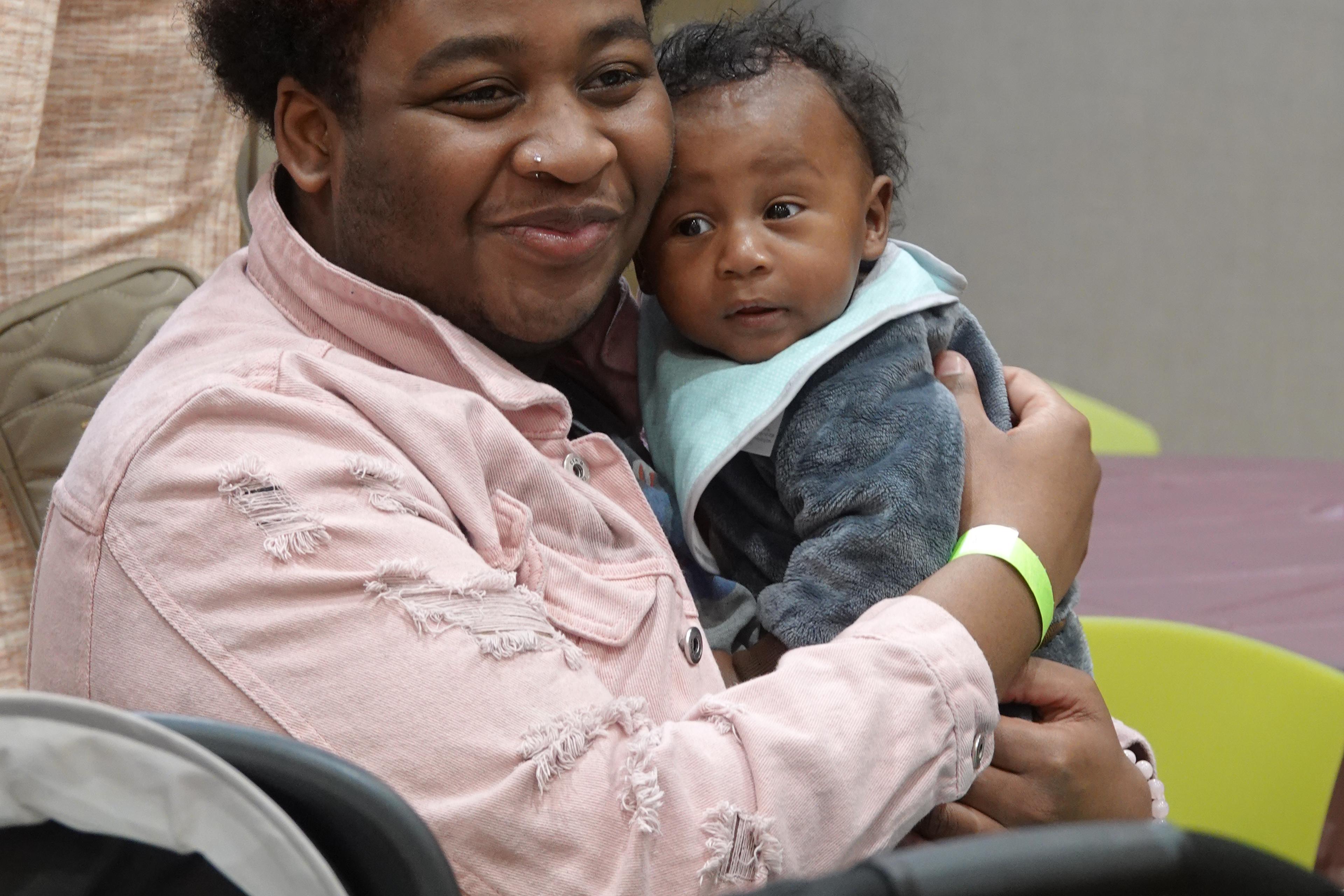
The young woman let Rey know that she was without a car seat, pack-and-play – which is a portable, baby-safe space that can be used as a bassinet, changing station, or travel crib – shelter and multiple other things.
“I gave her a link to fill out the Resource First form and she did not do it,” said Rey, referring to a form on the YWCA Kalamazoo website that helps the organization facilitate the items that clients need.
Rey ran into the family a short time later and they reiterated some of the crucial newborn resources they still needed. This time Rey helped her fill out the form so the young woman could acquire those newborn essentials before delivering her baby.
“We got the car seat, we got the pack-and-play, I connected her to home visitation programs and continued to talk to the mom,” Rey said. “I sent her some leads for apartments and ultimately connected her to another program within the YWCA that assisted her mom with paying the first month’s rent and deposit to move into their new place.”
Facilitating shelter for that woman and her family meant everything to Rey. She emphasized the importance of safe sleep, especially as it pertains to communities assisted by YWCA Kalamazoo.
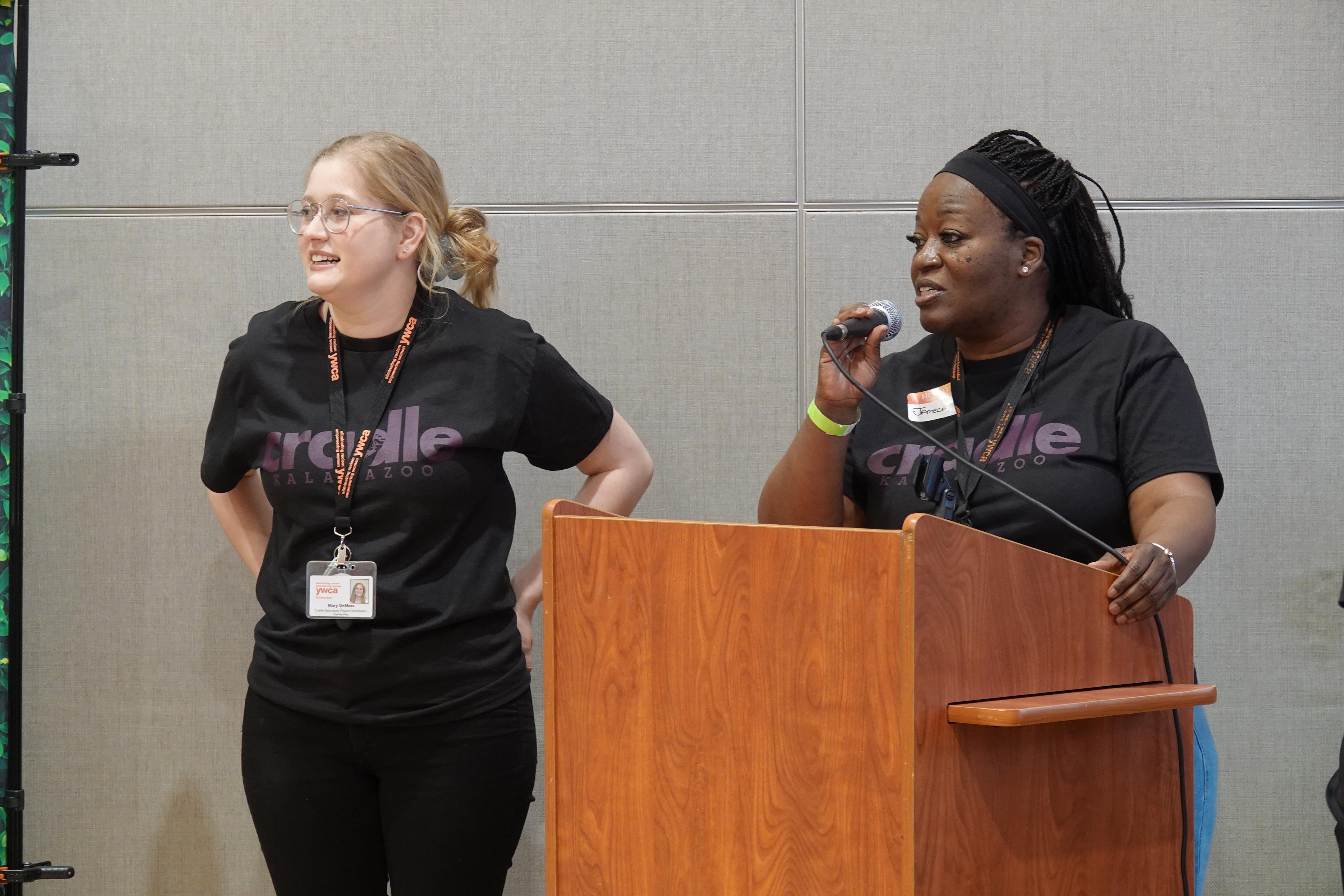
“What we know is, our Black babies are dying at four times the rate of their white counterparts, no matter their socioeconomic status,” Rey said. “And that is true for Kalamazoo County. We know that 80% of the deaths are preventable. A lot of them are due to unsafe sleep. So, we do a lot of training around unsafe sleep; how the baby should be laying, where the baby should be sleeping, not encouraging co-sleeping and making sure the baby has a place to sleep. So, we’re extremely big on that education and then also, not just saying, ‘This is what we think you should be doing,’ but providing the resources so they can practice these methods themselves.”
Birth equity is integral to YWCA’s mission. Women of color – especially Black women – have the poorest outcomes according to internationally recognized health indicators such as maternal mortality and infant mortality.
“Our reach to those identifying as Black or African American and pregnant has increased by 4% compared to 2023, though we expect that percentage to increase as the program continues to develop and more people in the community become aware of the services,” said Anne Marie Olbrot, Foundation Grants Manager at YWCA Kalamazoo, in a provided statement. “We are excited to see how this program continues to impact our community.”
Read on:
- Bringing the Draft to Balduck: BCBSM, Detroit Football Legends Host Free Football Camp for Kids in Eastside Detroit
- CEO: Balduck Park Improvements Key to Detroit Neighborhood Revitalization
- Catching Patients that Fall Through the Cracks in the Health Care System
Photo credit: YWCA





